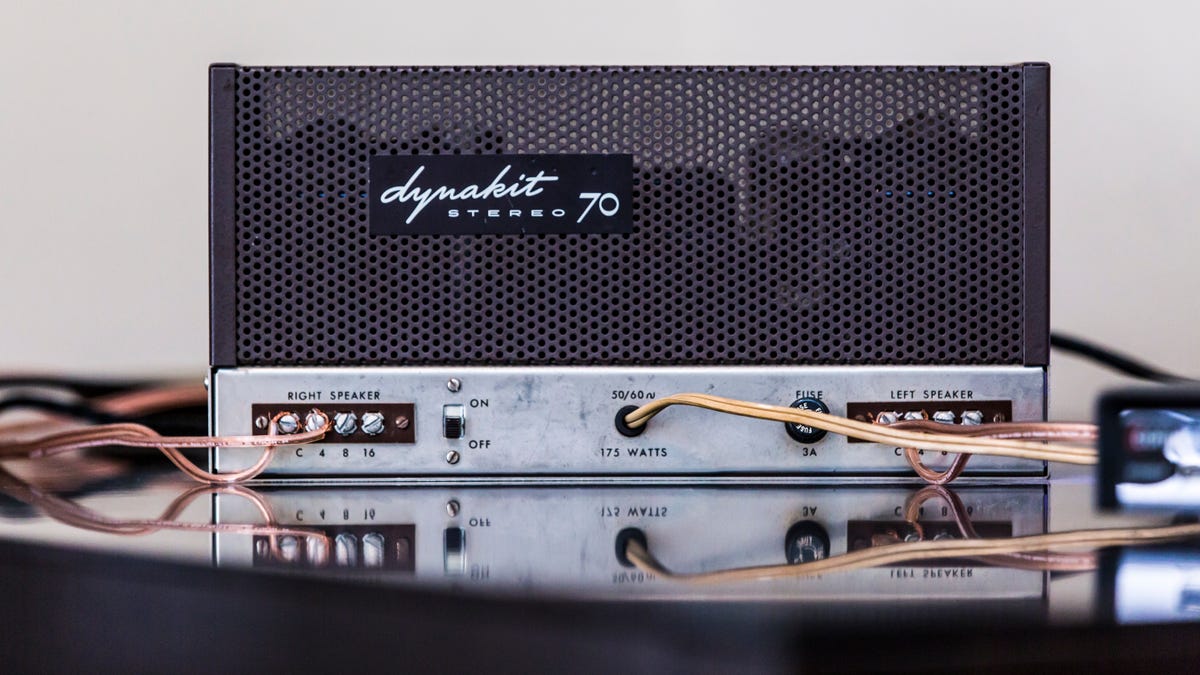The stereo gear that amplifies my friendships
Commentary: Peter had an irrepressible passion for music. I share that love through his old tube amplifier.
I never met Peter, but I think of him every time I listen to Ligeti's "Atmosphères."
Last year, Peter's daughter, a longtime friend, gave me his Dynakit ST-70 after she found the amplifier in her garage. Music was Peter's passion and his collection of audio equipment, carefully assembled over the years, reflected that love. The ST-70 was one of his prized possessions.
If you're an audiophile, you know the ST-70. It's a classic and considered the last of the great American tube amplifiers, the one that challenged a rising tide of solid-state equipment by balancing quality and value with the same finesse it balanced tone and clarity.
The ST-70, properly known as the Stereo 70, hit the market in 1959 and its industrial design reflects the era. Its squat chassis houses seven tubes that are covered by a brown cage evenly speckled with machine-drilled holes to allow the prodigious heat it generates to dissipate. It weighs close to 35 pounds.
For those of you into specs, the ST-70 puts out 35 watts per channel, modest by today's standards. But the sound is pure and clean, and was sufficient enough to impress High Fidelity magazine, which declared in a December 1959 review that the ST-70's "listening quality is unsurpassed."
Audiophiles swear tube amplifiers "warm" music. I'm not sure what that means, but I can tell you Bach's "St. Matthew Passion" expands when played through the ST-70. The space between the voices and instruments opens, and you can sense the separation of the sections.
It feels as if you could walk through the orchestra.
Peter's ST-70, with the grille removed.
I'm not into technical details. In fact, I had to look up the ST-70's particulars when I sat down to write this essay. For me, the ST-70 isn't about warming music. It's about connecting me to people I've shared music with throughout my life.
The ST-70 plays through a pair of Onkyo D-102AX speakers an English friend helped me pick out in Akihabara, Tokyo's electronics district, when I lived in Japan 18 years ago. Another close friend, a man whose wedding ceremony I officiated last autumn, helped me set the system up, fiddling insistently with the speakers until they were positioned properly for the acoustics of my small living room.
As soon as it was up and running, we listened to the recordings of another close friend who sings jazz.
Since then, everything from erhu standards to Blue Öyster Cult has run through Peter's ST-70.
As a child growing up in war-torn Korea, Peter saved his money to buy music. He was infatuated with opera and would get emotional listening to classical recordings. He particularly loved Bellini's "Norma" and Brahms' Piano Trio No. 1 in B major.
Peter was an accomplished musician himself. He was a tenor in his church choir and sang around the world. Sometimes, after a whiskey or two, his performances were spontaneous.
He moved to the US in 1966 and later started an import-export business. As he grew more successful, he indulged his love of music with stereo equipment. The ST-70, which cost $99.95 when it was new ($818 in today's dollars), was one of those splurges.
I've known Clara, Peter's daughter, for nearly 25 years and she's more than a friend; she's part of my extended family. Peter, Clara and I had scheduled get-togethers multiple times over the years. But Peter would get busy. Or Clara was on a trip. Or I was living overseas.
It just never happened and then it was too late. Peter died unexpectedly in 2008.
Even though I never met him, I feel like Peter and I are connected through the ST-70 and the music he loved. I think I'll listen to "Norma," the Beverly Sills version, tonight.
